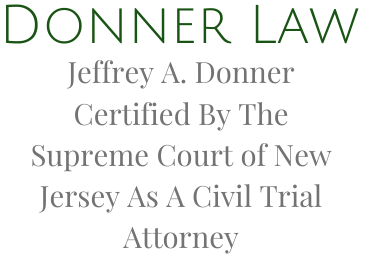#1 Considerations in Choosing the Right Attorney for You
You don’t have to be a defendant in a criminal matter charged with serious crimes and facing the potentially over-powering might of the government to want Justice.

Rather, Justice is a value that we all desire each day in our lives long before we are confronted by an event or
proceeding in which we seek the assistance of a lawyer.
When I am asked to define the term “Justice,” the first thought that comes to my mind is “Order,” the feeling that something is the way it should be. We all know that feeling because it flows from our innate sense of what is right and what is wrong. We may not be able to define or even describe what constitutes Justice or Order in a given circumstance, but we all know what it is when we see it.
Whatever the trigger may be that leads to the conclusion that legal representation is required, whether one is thrust into litigation by the need to sue or the fact of being sued, or by a business transaction, a project that requires government approvals, the purchase or sale of real estate, or the on-going needs of a business that routinely faces complex issues for which legal guidance and documentation is a must, we all seek to be treated fairly and to have our interests safeguarded.
This is where the attorney enters the equation, but the search for the right attorney that meets your needs often raises as many questions as the matter for which you need legal guidance. What should you look for in an attorney? Certainly, you will want an attorney with a firm knowledge of the law and, ideally, experience in the type of matter for which you seek representation. You will also want an attorney with the speaking and writing skills that enable your position, your case, your project or the terms on which your agreement rests to be expressed clearly, accurately and thoroughly within a presentation appropriate to the circumstances.
Once these requirements are met, you will rapidly turn to the question of what is this going to cost? At this point, you will be looking for fair and reasonable pricing commensurate with the scope of the task and the skills and experience the attorney brings to the matter. You
will be looking for honesty and transparency in discussing this topic. In that regard, my standard hourly billing rate is $400 per hour, and in appropriate matters, I also offer flat rate billing, contingent fee billing and/or hybrid arrangements involving a combination of a reduced hourly rate and a contingent fee.
While perhaps the most prevalent form of billing may be an hourly rate applied to the number of hours of legal services rendered, we can explore alternate pricing structures such as a flat rate to perform the task or defined portions of that task, a contingent fee arrangement that enables the attorney to share in a percentage of the recovery while bearing the risk of a lesser recovery or even no recovery at all, or perhaps a hybrid mixture of a lesser hourly rate with a lower contingent fee percentage. While not all of these compensation methods may be appropriate to every matter, the attorney must be candid with each potential client, willing to explain why a given compensation method should or should not be adapted to the matter at hand while being flexible and reasonable. Furthermore, the attorney must commit to issuing periodic billing statements, usually monthly but in appropriate matters more or less frequently, that set forth and reasonably identify the individual services rendered, the date when rendered, the amount of time devoted to that specific service, the hourly rate or other mode of compensation applied, and the amount billed for the period covered. This form of periodic billing enables both the client and the attorney to monitor the progress of the matter with the goal of keeping the overall fees and expenses proportionate to the value to the client and issues at stake.
Where the answers to the foregoing questions are forthcoming and acceptable, there is an additional quality that I deem to be equally essential: Does the attorney truly care about the outcome of your matter as displayed by an expressed determination and tenacity revealing an intent on achieving your goals? In short, is the attorney willing to fight to achieve Justice within the context for which you seek representation? It needs to be recognized that no attorney can legitimately guarantee a given outcome, but each attorney can and should commit to give their all within the bounds of ethical and truthful behavior.
Moreover, when agreement is reached on the scope and terms of the representation to be provided by the attorney, the terms of that agreement and the underlying facts of the matter should be clearly and comprehensively set forth in an engagement letter on which you the client can rely and avoid surprises down the road.
In my experience, these characteristics comprise the most important goal to be reached in each attorney-client relationship: TRUST. As the client, you are placing your faith, your hopes, your dreams as well as your livelihood and quite possibly your freedom in the hands of the
attorney that you select. This is identified as a fiduciary relationship requiring the highest standards of fidelity from the attorney. The attorney must recognize the sacred nature of this relationship thereby never taking it for granted and always being mindful of the client’s needs and reasonable expectations. Efforts to keep the client updated on what is occurring within the matter must be routinely exercised by the attorney and, where pertinent and helpful, direct discussion with the client should be conducted to explain the significance of particular occurrences and strategies so that the client maintains a realistic understanding of what can actually be achieved.
Nevertheless, a file should never be “churned” with unnecessary communications that result in increased cost without commensurate benefit to the client. Some clients initiate frequent and, at times, possibly excessive, communication with the attorney resulting in increased demands of the attorney’s time. In these instances, the client should be informed of the impact such excess communications may have on the amount billed. By the same token, no client should ever be discouraged from reaching out to the attorney to answer or discuss legitimate questions and issues on their mind. As many things in life require, the attorney-client relationship must be
balanced with the participants recognizing the cost components and needs that arise. As the relationship progresses, this task becomes easier as the client, having benefitted from the attorney’s input, gains greater awareness of what is needed to best achieve the goals.
I have often seen the swirling emotions of potential clients that are new to the experience of confronting legal challenges or perhaps are dealing with a particularly upsetting circumstance. When the above elements come together, the burdened, oppressed and/or anguished clients are often visibly relieved by laying the problems formerly confronted alone on the attorney’s desk realizing that they have found an ally, who will work diligently and competently to provide them with both a shield and a sword against the unknown. The steady hand of a competent, caring and compassionate attorney is undoubtedly a source of strength and reassurance.
This is the first of what I intend to be additional blogs dedicated to discussing and identifying not only the elements of a healthy and successful attorney-client relationship, but also some of the points you should know as a client about the kinds of matters for which you can obtain representation at Donner Law. In doing so, I am seeking to provide comprehensive answers to the questions that you are likely to have in approaching the need for legal representation and the choice of the right attorney for you. The goals here are candor,
transparency and responsiveness leading to the ultimate goal of Trust as we pursue Justice together.
Jeffrey A. Donner, Esq./Donner Law
© 2021 All Rights Reserved
Schedule a Consultation
Sound legal advice evolves from years of study, hard work and experience. It is motivated by a passion to achieve the very best result for each client. This is what you'll find at Donner Law.
We will get back to you as soon as possible
Please try again later
Contact info
708 State Route 35 S
2nd Floor
Neptune, NJ, 07753
United States
+1-732-578-8530
+1-732-580-7691
jdonner@donnerassociates.com

